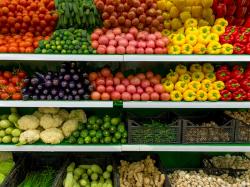The Inconvenient Truth About The Environmental Working Group's Dirty Dozen List
April 17, 2018 | 2 min to read

the Environmental Working Group – an NGO funded by big organic marketers – releases its annual “Dirty Dozen List” of produce items it categorizes as most important to buy as organic to avoid pesticide residues. EWG makes its list based on an egregious, science-free misinterpretation of what is really a remarkable,transparent source of public data generated by the USDA. What that data actually demonstrates is the outstanding safety profile of the U.S. food supply, but EWG twists it into an argument for consumers to pony up the extra dollars to buy organic with the idea that by doing so they are protecting themselves and their families from exposure to pesticide residues in food.
The “inconvenient truth” here is that the very same USDA data EWG is using to classify commodities as “dirty” documents the fact that organic food samples also contain detectable synthetic pesticide residues. If those low-level residues qualify as “dirty” when they are on “conventional” food, then organic is also “dirty.” Even if EWG wants to make a “dirty” index that isn’t supported by toxicology and health experts, it isn’t OK to ignore the fact that the same measure applies to the products that they are recommending as alternatives. A certain number of the samples in the USDA program happened to be labeled as organic, and EWG looked at the data at a level detail where they could have noticed that, so they have no excuse for this omission of information.
To read the rest of the story, please go to: Forbes
